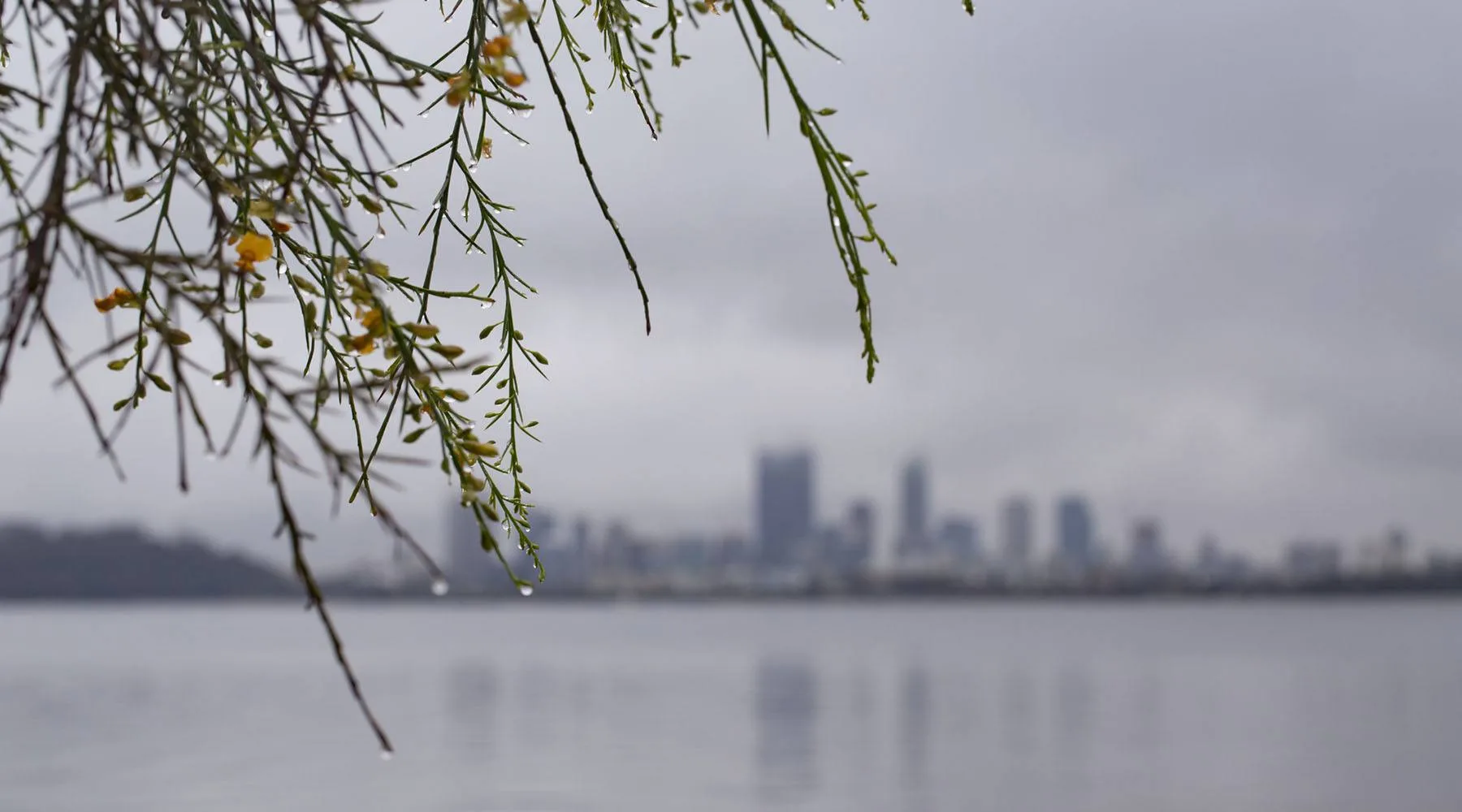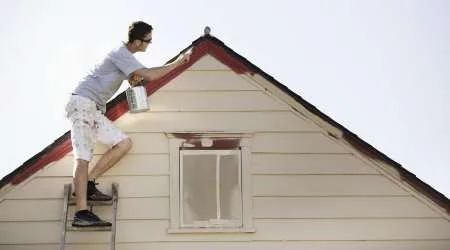
Learn about the protection offered by home insurance in the wake of the WA storms.
Homes have been destroyed and more than 20,000 residents left without power after Ex-Cyclone Seroja smashed into the mid-west coast of Western Australia on Sunday night.
Prime Minister Scott Morrison said the Commonwealth disaster response plan had been activated and the government is standing ready to provide assistance to those in need.
The fast-moving storm has since been downgraded from a cyclone to a tropical low, but that won't mean much for those who've been affected by damaged properties, fallen trees and other impacts of the wild wind and rain.
Let's have a look at the implications for insurance if you've been affected by Ex-Cyclone Seroja.
Can I make a claim if the storm damaged my home?
If you have home and contents insurance, you should be able to make a claim for any damages. These need to have been directly caused by the destructive weather.
Storm damage is generally covered as standard within home insurance. For example, storm damage, which can be thought of as rainwater that had nowhere else to go, should be covered by your home insurance. Examples of storm-based events include strong winds, heavy rain, lightning and hail.
However, the same isn't always true if you're looking to claim for flood water damage – for example, if the damage was caused by water that overflows from rivers or lakes. If this is the type of damage you've suffered, it'd be a good idea to check if flood insurance is included in your policy's PDS.
What if my house has experienced some water damage?
As previously mentioned, if your home's been damaged by rainwater that's leaked in, you should be able to make a claim with your insurer.
This type of damage falls under the category of what's known as water damage. It's typically a part of Australian home insurance policies.
If you've had to evacuate your home, you may also be able to claim some of the money back if you've had to pay for temporary accommodation.
How to make a claim on your home insurance
Start by trying to find your insurance paperwork or log into your account online. Your insurer will have electronic records handy in case you'd prefer to phone your insurer. You should only need your name and address.
If you can, try to collect copies of your insurance policies, recent valuation reports, identification and bank account records. These factors could help for a more speedy claim.
You could also try the Insurance Council of Australia (ICA)'s disaster hotline at 1800 734 621 to get more information if you're a policyholder who's been affected by the severe weather.
Is cyclone insurance an option for me in the future?
You'd be hard-pressed to find an actual cyclone insurance policy. A cyclone is a type of storm and, generally speaking, you should be covered under storm cover. That being said, if the cyclone causes a storm surge (also known as an action of the sea) that results in excess water from the shore damaging your home, then unfortunately you may not be covered.
Finder's research team looked into 16 home insurance brands and found that 15 providers specifically mentioned cyclones but couldn't find a mention of a tropical low, which Cyclone Seroja was downgraded to earlier on Monday.
If you're seeking peace of mind that you'll be protected against a range of unexpected events, you may want to look for a home insurance policy that offers wide-ranging cover.
 | Loss or damage as result of the following:- storm (including cyclone)
- rainwater
- flood
- wind
| No mention |
 | Loss or damage caused by storm or rainwater. Storm – This is a violent atmospheric disturbance producing strong winds. It can be accompanied by rain, lightning, hail or snow and it includes cyclones and tornadoes. Storm does not mean persistent bad weather, heavy or persistent rain by itself, or heavy or persistent wind by itself. | No mention |
 | Damage caused by storm, storm surge, rain, hail or flood. Storm includes a cyclone. | No mention |
 | Loss or damage caused by storm, rainwater or flood Storm – This is a violent atmospheric disturbance generally producing strong winds. It can be accompanied by rain, lightning, hail or snow and it includes cyclones and tornadoes. Storm does not mean persistent bad weather, heavy or persistent rain by itself, or heavy or persistent wind by itself. | No mention |
 | Loss or damage caused by storms and rainwater Storm – This is a weather event, including cyclones, that may be accompanied by strong winds, rain, lightning, hail, snow or dust. | No mention |
 | We will cover the following:- violent wind or thunderstorm (including a tornado or cyclone)
- heavy rain, hail or snow
| No mention |
 | Loss or damage caused by storm, wind, hail or rainwater. Storm means the following: - a thunderstorm
- rain, snow or hail
- a cyclone, tornado or other violent wind
- run-off of storm water following a localised storm in your area
Loss or damage caused by storm surge will also be covered but only if there is other damage as a result of the storm. Storm surge means an increase in the sea level resulting from strong onshore winds or reduced atmospheric pressure associated with a low-pressure system or tropical cyclone. | No mention |
 | Loss or damage caused by storm or rainwater. Storm – This is a violent atmospheric disturbance producing strong winds. It can be accompanied by rain, lightning, hail or snow and it includes cyclones and tornadoes. Storm does not mean persistent bad weather, heavy or persistent rain by itself, or heavy or persistent wind by itself. | No mention |
 | Loss or damage caused by storms and rainwater Storm – This is a weather event, including cyclones, that may be accompanied by strong winds, rain, lightning, hail, snow or dust. | No mention |
 | Loss or damage caused by storm, rainwater or flood Storm – This is a violent atmospheric disturbance generally producing strong winds. It can be accompanied by rain, lightning, hail or snow and it includes cyclones and tornadoes. Storm does not mean persistent bad weather, heavy or persistent rain by itself, or heavy or persistent wind by itself. | No mention |
 | Loss or damage caused by storm, rainwater or flood Storm – This is a violent atmospheric disturbance generally producing strong winds. It can be accompanied by rain, lightning, hail or snow and it includes cyclones and tornadoes. Storm does not mean persistent bad weather, heavy or persistent rain by itself, or heavy or persistent wind by itself. | No mention |
 | Loss or damage caused by storm, including cyclone, hail, wind, snow or rain. | No mention |
 | Loss or damage caused by storms and rainwater Storm – This is a weather event, including cyclones, that may be accompanied by strong winds, rain, lightning, hail, snow or dust. | No mention |
 | Loss or damage caused by storm, including cyclone, hail, wind, snow or rain. | No mention |
 | Loss or damage caused by storm, rainwater or flood Storm – This is a violent atmospheric disturbance generally producing strong winds. It can be accompanied by rain, lightning, hail or snow and it includes cyclones and tornadoes. Storm does not mean persistent bad weather, heavy or persistent rain by itself, or heavy or persistent wind by itself. | No mention |
 | Loss or damage to the insured property caused by storm, lightning, wind, hail, snow and storm water overflow from roof gutters and their downpipes or from the area immediately around the premises. Storm means a violent atmospheric event, which includes a thunderstorm, cyclone or strong wind with or without rain, hail or snow, but not rain showers alone. | No mention |
Looking for a policy that covers you for cyclones? It's always a good idea to revisit your home insurance every now and then.
Picture: GettyImages













